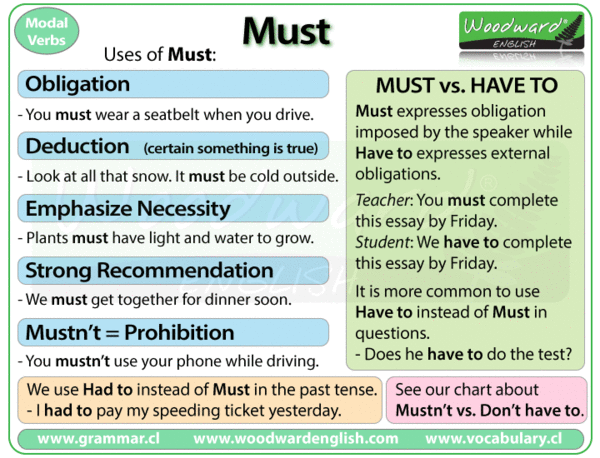Must is a modal verb. Have (got) to is not a modal verb, but shares some features of modal verbs.
- Must and have (got) to are used in the present to say that something is necessary or should be done. Have to is more common in North American English, especially in speech.
- In British English there is a difference between them:
- Must is used to talk about what the speaker or listener wants:
- I must finish this essay today. I’m going out tomorrow.
- Have (got) to is used to talk about rules, laws and other people’s wishes:
- I have to finish this essay today. We have to hand them in tomorrow.
- Must is used to talk about what the speaker or listener wants:
- In negative sentences both must not and don’t have to are used, but with different meanings:
- Must not is used to tell somebody not to do something: Passengers must not smoke until the signs have been switched off. The short form mustn’t is used especially in British English: You mustn’t leave the gate open.
- Don’t have to is used when it is not necessary to do something: You don’t have to pay for the tickets in advance. She doesn’t have to work at weekends.
- Both must and have to are used to say that you are certain about something (have to is the usual verb is North American English):
- He has (got) to be the worst actor on TV!
- This must be the most boring party I’ve ever been to.
























